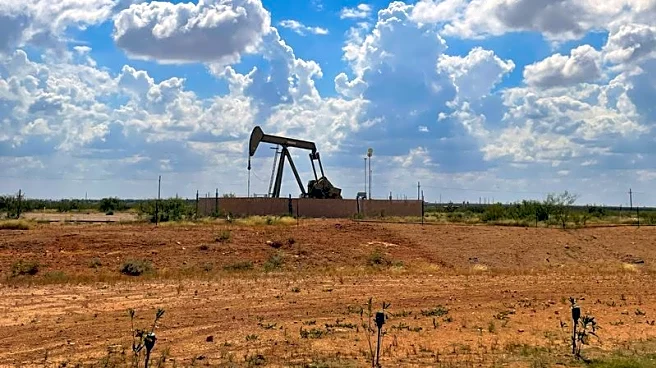Rapid Read • 8 min read
Zimbabwe is proactively addressing climate threats to food security by initiating an ambitious dam project. This initiative is part of a larger national program aimed at irrigating 350,000 hectares by 2028, in preparation for a La Niña season predicted to bring wetter conditions in 2025-2026. The government is investing in water harvesting infrastructure to capture and store excess rainfall for year-round agricultural use. Engineer Edwin Zimunga from the Ministry of Lands, Agriculture, Fisheries, Water, and Rural Development emphasized the need for large-scale infrastructure and conservation efforts due to climate variability. The project aims to enhance climate resilience in areas vulnerable to unpredictable rainfall patterns and severe weather.
AD
The dam project is crucial for Zimbabwe's food security and climate resilience, as it seeks to mitigate the impacts of erratic rainfall and severe weather conditions. By efficiently capturing and storing excess rainfall, the initiative supports sustainable agricultural practices and helps prevent catastrophic consequences from inadequate dam maintenance. This strategic move is expected to bolster Zimbabwe's agricultural production, ensuring food security and economic stability in the face of climate change. The project also highlights the importance of soil conservation as a key pillar of agricultural production, aiming to preserve biodiversity and natural resources on a larger scale.
The next steps involve the continued development and maintenance of the dam infrastructure to ensure its effectiveness in capturing and storing rainfall. Authorities will focus on building contours and field drainages to channel and retain water efficiently. The government will likely monitor the project's progress closely, addressing any challenges that arise due to climate variability. Stakeholders, including farmers and conservationists, are expected to collaborate to maximize the benefits of the project, potentially influencing similar initiatives in other regions facing climate threats.
The dam project in Zimbabwe could serve as a model for other countries facing similar climate challenges, emphasizing the importance of proactive measures in climate resilience. It underscores the need for comprehensive strategies that integrate infrastructure development with conservation efforts, highlighting the ethical responsibility to protect biodiversity and natural resources. The initiative may also prompt discussions on global climate policies and the role of developing nations in addressing climate change impacts.
AD
More Stories You Might Enjoy












